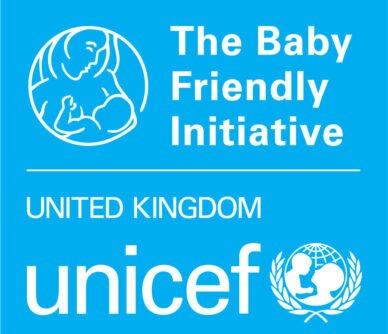Below are some of the latest studies around overweight, diabetes and other conditions.
Lactation Duration and Long-term Risk for Incident Type 2 Diabetes in Women With a History of Gestational Diabetes Mellitus
This study assessed the association of lactation duration with incident type 2 diabetes among women with a history of gestational diabetes mellitus (GDM),concluding that longer duration of lactation is associated with a lower risk of type 2 diabetes and a favorable glucose metabolic biomarker profile among women with a history of GDM. The underlying mechanisms and impact on diabetes complications, morbidity, and mortality remain to be determined.
Hospital breastfeeding support and exclusive breastfeeding by maternal pre‐pregnancy BMI
This US study explored the impact of the Ten Steps to Successful Breastfeeding on supporting breastfeeding amongst mothers with obesity, who have disproportionately lower rates of exclusive breastfeeding than mothers who are not obese. Researchers found that holding babies in skin-to-skin contact for the first time and being encouraged to feed on demand were more strongly associated with exclusive breastfeeding among mothers with obesity than other mothers. Additionally, mothers with obesity reported holding babies skin‐to‐skin significantly less often than other mothers. They concluded that interventions aimed at helping mothers with obesity to hold their babies skin‐to‐skin in the first hour and teaching them to breastfeed on demand have the potential to decrease the breastfeeding disparities in this population.
Impact of maternal obesity and breastfeeding intention on lactation intensity and duration
This study explored whether maternal body composition measurements in early pregnancy are predictive of lower rates of exclusive breastfeeding (EBF). Researchers found that increasing BMI and % body fat in early pregnancy were significantly associated with lower rates of EBF among women intending EBF. Women with BMI ≥ 25 were less likely to be EBF at 6 weeks and 6 months post-partum (PP) compared with women of normal BMI (67 and 37% vs. 91 and 79%). Among primiparous women intending EBF, 100% of women in the lowest two body fat quartiles in early pregnancy were EBF at 6 weeks PP compared with 66.7 and 63.6% of women in the higher quartiles. The authors concluded that lactation cessation by 6 months PP was higher with increasing maternal BMI, and that maternal obesity in early gestation is associated with lower EBF rates among women intending EBF and earlier weaning.
Lactation Duration and Progression to Diabetes in Women Across the Childbearing Years
This observational 30-year study found that increasing lactation duration was associated with a strong, graded relative reduction in the incidence of type-2 diabetes even after accounting for pre-pregnancy biochemical measures, clinical and demographic risk factors, gestational diabetes, lifestyle behaviors, and weight gain that prior studies did not address. The graded risk reduction ranged from 25% for 6 months or less to 47% for 6 or more months of lactation.
Older research
- Foster, DA, et al (2017), Advising women with diabetes in pregnancy to express breastmilk in late pregnancy (Diabetes and Antenatal Milk Expressing [DAME]): a multicentre, unblinded, randomised controlled trial. The Lancet, DOI: http://dx.doi.org/10.1016/S0140-6736(17)31373-9
- Preusting, I, Brumley, J, et al, (2017). Obesity as a Predictor of Delayed Lactogenesis II, Journal of Human Lactation, doi.org/10.1177/0890334417727716
- Boudet-Berquier, J, & Salanave, B, et al, (2017). Association between maternal prepregnancy obesity and breastfeeding duration: Data from a nationwide prospective birth cohort. Maternal & Child Nutrition, doi.org/10.1111/mcn.12507
- Boudet-Berquier, J, & Salanave, B, et al, (2017). Association between maternal prepregnancy obesity and breastfeeding duration: Data from a nationwide prospective birth cohort. Maternal & Child Nutrition, doi.org/10.1111/mcn.12507



